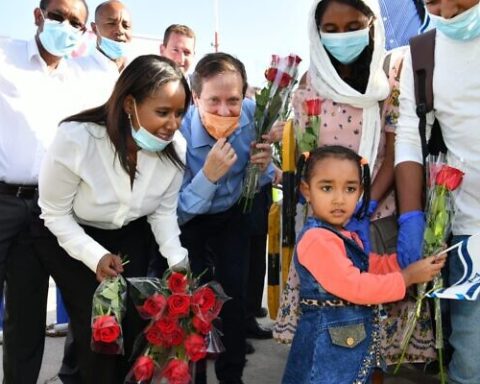
According to information from Wikipedia Wikipedia, Saudi Arabia stands out as a prominent destination for Ethiopian migrants, hosting approximately 2.1 million individuals from Ethiopia. This influx is primarily driven by the country’s substantial demand for labor across various sectors, including domestic services, construction, and other industries. The economic prospects available in Saudi Arabia draw many Ethiopians who are eager to enhance their living conditions, positioning the nation as one of the leading global destinations for Ethiopian migration.
The United States is home to the second largest community of Ethiopian immigrants. Recent estimates suggest that over 460,000 individuals born in Ethiopia currently reside in the U.S., alongside a significant population of individuals of Ethiopian descent spread across the nation.
Prominent cities that boast substantial Ethiopian populations include Washington, D.C., Los Angeles, Minneapolis, Dallas, and Seattle. These urban centers serve as vital hubs for cultural exchange and community support among Ethiopian immigrants and their descendants.
This concentration is largely due to migration waves driven by political, economic, and social factors, especially during the late 20th century. These communities have established vibrant cultural hubs, contributing to the economy and enriching the cultural diversity of the U.S.
The United Arab Emirates (UAE) stands out as a key destination for Ethiopian migrants, hosting approximately 200,000 individuals who are in pursuit of employment opportunities overseas. A considerable portion of these migrants secures jobs in various industries, including domestic service, construction, retail, and hospitality. Their migration is largely driven by the UAE’s strong labor demand and the prospects for economic improvement.
Nevertheless, Ethiopian migrants in the UAE encounter various challenges akin to those faced by their counterparts in other Gulf nations. These challenges include contractual disputes, insufficient labor protections, and instances of exploitation or abuse. Such circumstances have led to persistent advocacy efforts aimed at enhancing migrant rights and establishing stronger bilateral agreements between Ethiopia and the UAE, with the goal of ensuring improved treatment and working conditions for these individuals.
Ethiopia’s fouth-largest diaspora population indeed resides in Israel, with approximately 160,500 individuals as of 2021. This group primarily consists of the Beta Israel community (Ethiopian Jews), who migrated to Israel in waves, particularly during Operations Moses (1984) and Solomon (1991), and through ongoing immigration efforts.
The Ethiopian-Israeli community has faced both challenges and successes in their integration into Israeli society. While there have been significant contributions to Israel’s cultural, economic, and social spheres, issues like racial discrimination and socioeconomic disparities remain areas of concern. Nonetheless, the Ethiopian-Israeli community continues to thrive and advocate for equality and recognition within Israeli society.
Ethiopian communities have made their mark internationally, with particular emphasis on three countries that stand out as major hubs for Ethiopian immigrants. In Saudi Arabia, there are approximately 2,000,000 individuals of Ethiopian origin, while the United States is home to around 460,000. The United Arab Emirates accommodates about 200,000 Ethiopians, and Israel has a significant population of approximately 155,300 Ethiopian-born residents.
| Total population | |
|---|---|
| Saudi Arabia | 2, 000,000 (Ethiopian-born) |
| United States | 460,000 |
| UAE | 200,000 |
| Israel | 155,300 |



